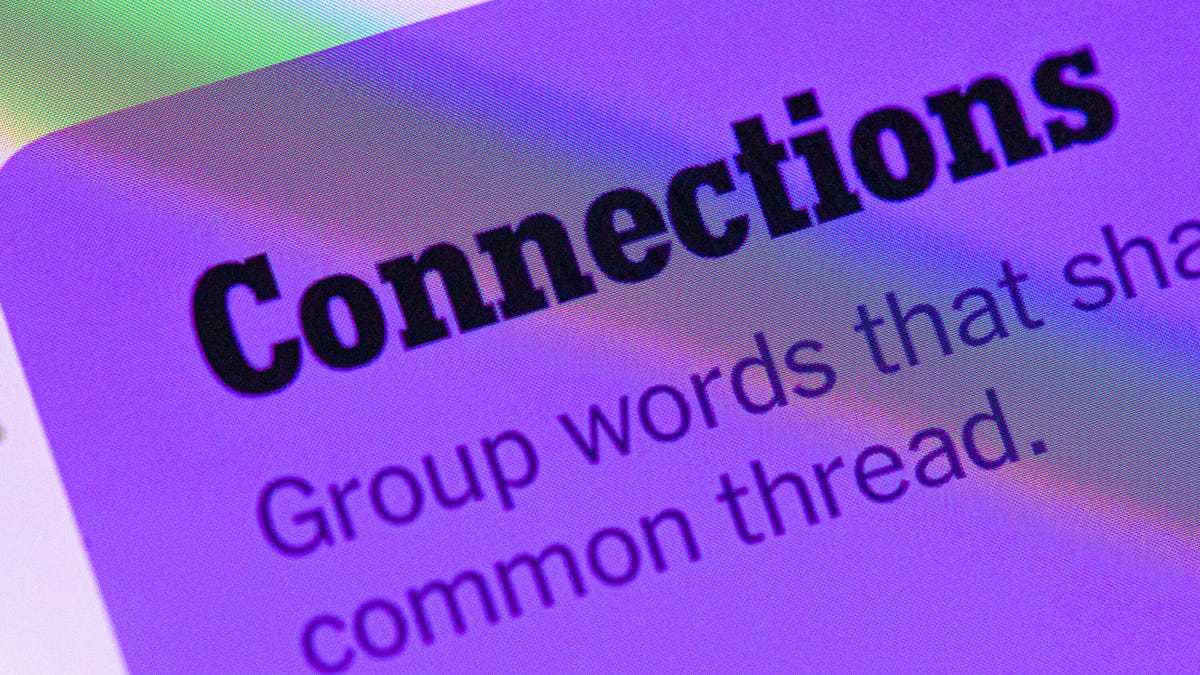Technologies
ChatGPT Search Improves Its Shopping Experience
It’s a direct shot at Google’s Search-powered shopping tools.

ChatGPT Search, OpenAI’s AI-powered competitor to Google Search, is getting enhanced shopping features, including the ability to search for products, compare options and buy directly within ChatGPT, the company said in a press release Monday.
Users will see personalized recommendations, visual product details, pricing and product reviews. As with other ChatGPT queries, ChatGPT Search will, in the coming weeks, retain memory of users’ past shopping experiences and consider context from past conversations to help tailor a personalized experience.
Read more: Best AI Chatbots of 2025
ChatGPT Search will also provide direct links for products. This shopping experiment will include products in fashion, beauty, home goods and electronics, expanding the shopping categories as it learns more. OpenAI says it doesn’t make any affiliate revenue.
This feature is available to all ChatGPT users, including ones not logged in, via the GPT-4o model. OpenAI said the changes are now available in 4o, and beginning to roll out as of Monday to ChatGPT Plus, Pro, Free and logged-out users.
A representative for OpenAI didn’t immediately respond to a request for comment.
(Disclosure: Ziff Davis, CNET’s parent company, in April filed a lawsuit against OpenAI, alleging it infringed Ziff Davis copyrights in training and operating its AI systems.)
Status of search
Online search is big business, and Google is currently the king of search, with 89.74% market share, according to Statcounter. With the launch of ChatGPT in late 2022, more people have been turning to AI chatbots to satiate their online search demand.
Where traditional online searches rely on keywords and users filtering through sites to find the information they want, AI chatbots allow users to directly ask questions and get complete answers in the process.
Last year, OpenAI launched ChatGPT Search, a version of its AI chatbot that also searches the internet for up-to-date information. There are other players in the AI-powered online search game, including Perplexity and You.com. Google has also added AI into its core search product with AI Overviews, an experience that’s still producing incorrect information.
Google remains highly popular, seeing about 14 billion searches per day. While ChatGPT is seeing 500 million active weekly users, its popularity still pales in comparison to Google’s. Currently, Google is pulling in 373 times more searches than ChatGPT, according to SparkToro.
Search brought in $198 billion in revenue last year, thanks to ads and shopping recommendations placed against user queries. If OpenAI does aggressively monetize shopping recommendations in the future, it could eat away at Google revenues, as well as revenues from sites that make money from reviewing and recommending products.
ChatGPT Search is getting some other improvements as well. WhatsApp users can now send messages directly to ChatGPT within the app. It’s a peculiar integration considering WhatsApp owner Meta already has MetaAI baked into its apps. ChatGPT Search will also allow users to see trending search topics.
The regular version of ChatGPT is seeing improved citations as well, with the ability to cite multiple sources.
Technologies
Fable Reboot Set for Fall 2026 as RPG Franchise Debuts on PS5
It’s a big world where you can do almost anything you want.

Microsoft held a Developer Direct on Thursday to focus on just a few games coming to the Xbox platform this year. One of the titles shown was the return of a once-dormant series.
Fable is a longtime Xbox exclusive that started back in 2004, and it’s been more than a decade since the last entry. Developed by Playground Games, best known for the Forza Horizon series, this new Fable game will expand on the roleplaying mechanics of the original to create an experience where players’ choices affect the world.
Don’t miss any of our unbiased tech content and lab-based reviews. Add CNET as a preferred Google source.
When does Fable come out?
Fable is set to be released in autumn 2026.
What platforms will Fable be released on?
Fable is currently planned for PC, Xbox Series X and S consoles and PS5. This marks the first time the franchise will be available on a PlayStation. A Switch 2 version is reportedly under consideration.
Will Fable be available on Xbox Game Pass?
Yes. Fable will be a Day 1 release for Xbox Game Pass, meaning subscribers will be able to play for no extra cost on the day of release.
What is Fable?
Fable is an RPG franchise that started back in 2004 on the original Xbox. The concept behind the game, originally developed by famed developer Peter Molyneux and Lionhead Studios, was a world that would react to the player’s actions, whether it’s people shocked by the character’s evil deeds or individuals holding grudges for years over something the player did.
The last mainline entry of the Fable franchise came in 2010 with Fable 3 for the Xbox 360. There were multiple spinoffs since then, such as Fable Heroes, Fable Fortune, Fable Coin Golf and Fable: The Journey.
What’s the story of the new Fable?
Like with other Fable games, this new entry starts with the hero as a child. At some point early on, their hero powers emerge and, after a time jump, they become an adult. Where the hero goes will be up to the player, as there is no set path to take once they leave their village, where, one day, the inhabitants turn to stone.
The developer says there are more than 1,000 NPCs with their own personalities and routines, and that every town is functional, down to the exact number of beds for all the townfolk. Characters have jobs and their own schedules, which adds an extra dimension to these typically mundane, background characters.
Players can progress right through the story, or they can just live in a random town and stay there for as long as they want.
What kind of choices will players be able to make in Fable?
There will be plenty of decisions to make in Fable, from buying a home, getting a job or romancing a villager. Players can start a business, hire villagers to work for them, or buy property to rent out.
Every decision made earns the hero a reputation, such as being a rich tycoon, and villagers will have their own unique reaction to that reputation. This means not every character will view your character the same way. There will also be choices made that can affect the world.
One example the developer noted was a character who developed a magic potion that could change a person’s size. This character will eventually grow into a giant, and depending on the player’s decision, can die outside of the village. Leaving the giant’s body there can provoke reactions from the townfolk, including a drop in home prices.
Technologies
Google Photos Adds AI-Powered Meme Creation With ‘Me Meme’
Meme it up with photos of your cat, or your friend, or whatever funny photos your camera roll holds.

Do you have a great cat photo you just know could go viral? Google’s new AI feature, Me Meme, lets Google Photos turn photographs into memes, those sassy captioned photos that sometimes express the exact right sentiment. Choose a Google template, then upload your own funny photo, and AI will transform it into a meme.
Don’t miss any of our unbiased tech content and lab-based reviews. Add CNET as a preferred Google source.
To use Me Meme:
- On your device, open the Google Photos app.
- At the bottom, tap Create and then Me Meme.
- Select a template.
- Tap Add photo.
- Select the photo you want to upload.
- Tap Generate.
- After the meme is generated:
- To save the meme: Tap Save.
- To generate again: Tap Regenerate.
- To share on other platforms: Tap Share.
I have a Google Pixel 9, and while my Photos app is up to date, the option didn’t appear for me as of Friday.
At CES 2026, Google executive Sameer Samat told CNET that the company wanted to make its AI tools, including Nano Banana and Gemini, more useful. While meme-making might not be the most practical AI use, it is something anyone can try.
A representative for Google did not immediately respond to a request for comment.
Technologies
Today’s NYT Connections Hints, Answers and Help for Jan. 24, #958
Here are some hints and the answers for the NYT Connections puzzle for Jan. 24 #958.

Looking for the most recent Connections answers? Click here for today’s Connections hints, as well as our daily answers and hints for The New York Times Mini Crossword, Wordle, Connections: Sports Edition and Strands puzzles.
Today’s NYT Connections puzzle is a bit challenging, especially the purple category, as always. Read on for clues and today’s Connections answers.
The Times has a Connections Bot, like the one for Wordle. Go there after you play to receive a numeric score and to have the program analyze your answers. Players who are registered with the Times Games section can now nerd out by following their progress, including the number of puzzles completed, win rate, number of times they nabbed a perfect score and their win streak.
Read more: Hints, Tips and Strategies to Help You Win at NYT Connections Every Time
Hints for today’s Connections groups
Here are four hints for the groupings in today’s Connections puzzle, ranked from the easiest yellow group to the tough (and sometimes bizarre) purple group.
Yellow group hint: Think Muhammad Ali.
Green group hint: We won!
Blue group hint: Fashion element.
Purple group hint: Winter weather.
Answers for today’s Connections groups
Yellow group: Gear for a boxer.
Green group: Championship.
Blue group: Kinds of necklines.
Purple group: Snow ____.
Read more: Wordle Cheat Sheet: Here Are the Most Popular Letters Used in English Words
What are today’s Connections answers?
The yellow words in today’s Connections
The theme is gear for a boxer. The four answers are gloves, mouthguard, robe and shorts.
The green words in today’s Connections
The theme is championship. The four answers are award, crown, cup and title.
The blue words in today’s Connections
The theme is kinds of necklines. The four answers are boat, crew, halter and scoop.
The purple words in today’s Connections
The theme is snow ____. The four answers are cone, globe, leopard and pea.
Don’t miss any of our unbiased tech content and lab-based reviews. Add CNET as a preferred Google source.
-

 Technologies3 года ago
Technologies3 года agoTech Companies Need to Be Held Accountable for Security, Experts Say
-

 Technologies3 года ago
Technologies3 года agoBest Handheld Game Console in 2023
-

 Technologies3 года ago
Technologies3 года agoTighten Up Your VR Game With the Best Head Straps for Quest 2
-

 Technologies4 года ago
Technologies4 года agoBlack Friday 2021: The best deals on TVs, headphones, kitchenware, and more
-

 Technologies4 года ago
Technologies4 года agoGoogle to require vaccinations as Silicon Valley rethinks return-to-office policies
-

 Technologies5 лет ago
Technologies5 лет agoVerum, Wickr and Threema: next generation secured messengers
-

 Technologies4 года ago
Technologies4 года agoOlivia Harlan Dekker for Verum Messenger
-

 Technologies4 года ago
Technologies4 года agoiPhone 13 event: How to watch Apple’s big announcement tomorrow
